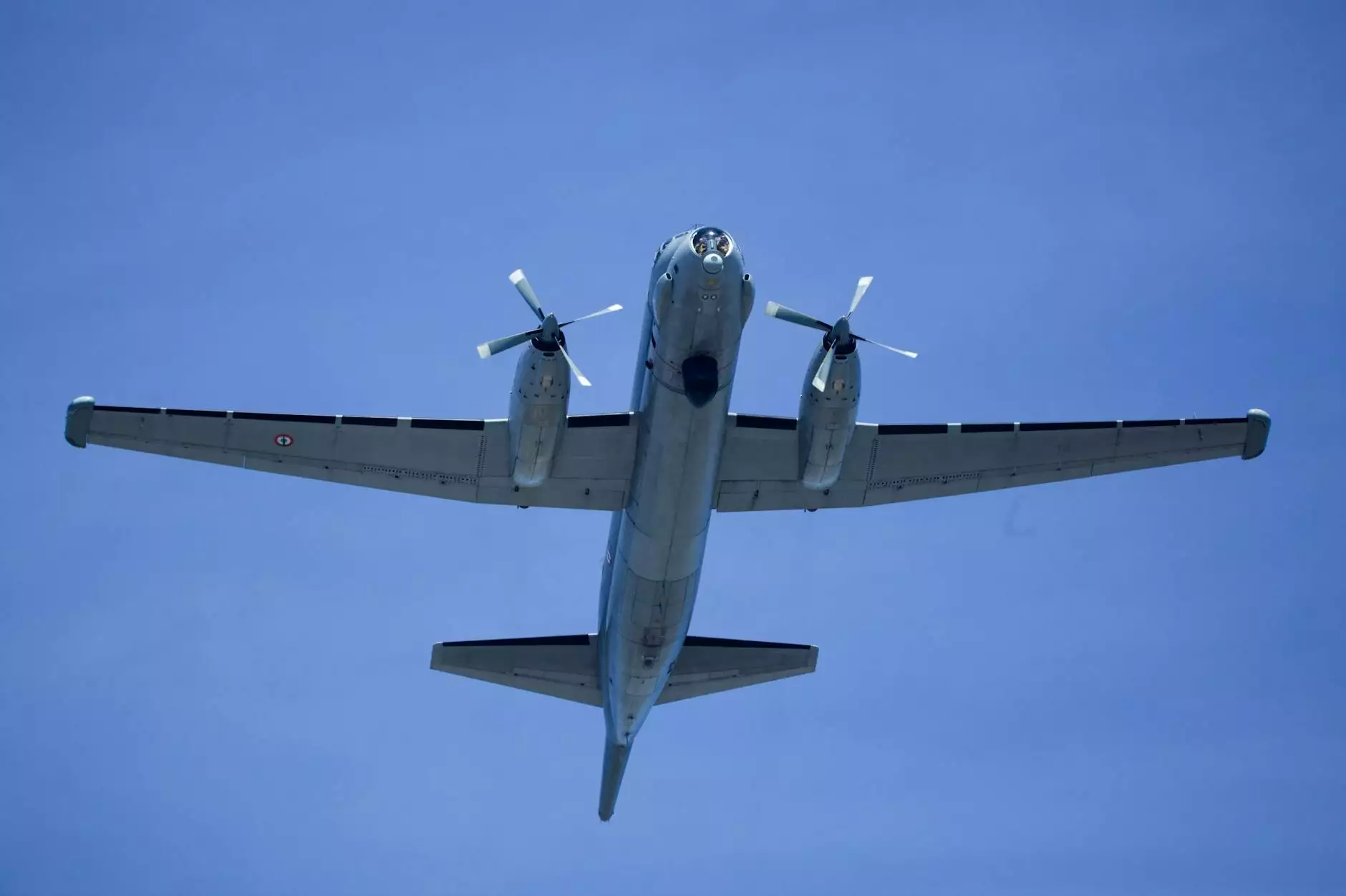Cargo Flight Tracker: The Ultimate Tool to Transform Your Business in Shipping, Transportation, and Airport Operations

In today’s fast-paced global economy, accuracy, efficiency, and real-time information are the lifeblood of successful logistics and transportation businesses. The ability to monitor, coordinate, and manage cargo flights seamlessly not only enhances operational efficiency but also strengthens customer trust and competitive advantage. At the heart of this technological revolution lies the cargo flight tracker, a revolutionary tool that is transforming how businesses operate in shipping centers, airports, and transportation networks worldwide.
The Significance of a Cargo Flight Tracker in Modern Business
Businesses involved in logistics, freight forwarding, and international trade recognize that timely and precise information about cargo flights plays a critical role in maintaining supply chain integrity. The advent of advanced cargo flight tracking systems addresses this need by providing real-time flight data, which is essential for making informed decisions, optimizing routes, reducing delays, and improving overall operational efficiency.
With the integration of innovative tracking technologies, companies can now monitor every phase of a flight’s journey—from departure at the airport, through en-route monitoring, to final delivery at the destination shipping center. This technological leap forward translates into reduced operational costs, enhanced transparency, and superior customer service.
How Cargo Flight Trackers Enhance Business Operations
1. Real-Time Monitoring and Visibility
By leveraging a cargo flight tracker, logistics managers gain immediate access to live flight statuses, including departure times, expected arrival, current location, and potential delays. This transparency allows businesses to manage their inventory more proactively, avoid unnecessary storage costs, and ensure timely delivery to customers.
2. Improved Planning and Scheduling
Accurate, real-time data helps airline operators, freight companies, and airport administrators to optimize schedules, coordinate ground handling services, and streamline cargo movements. This results in less downtime and more efficient utilization of aircraft and airport facilities.
3. Enhanced Customer Satisfaction
End customers and clients increasingly demand up-to-the-minute updates about their shipments. Using a cargo flight tracker, companies can provide transparent updates, increase customer trust, and foster long-term loyalty by demonstrating commitment to service excellence.
4. Proactive Issue Resolution
When disruptions occur—such as weather delays, technical issues, or air traffic congestion—cargo flight tracking systems can alert involved parties instantly. This enables swift responses, alternation of routes, and minimization of impact on the supply chain.
Technological Foundations of an Effective Cargo Flight Tracker
Leading cargo flight trackers employ a sophisticated combination of ADS-B (Automatic Dependent Surveillance-Broadcast), API integrations, and data analytics to deliver comprehensive and accurate flight data. These systems compile information from multiple sources, including air traffic control, airline systems, and satellite data, to create a holistic view of each flight’s status.
Global Positioning System (GPS) and Satellite Communication
GPS and satellite communication are at the core of precise tracking, enabling global coverage even over remote areas or offshore regions. This ensures that every cargo flight can be monitored regardless of its path or destination.
Data Integration and Automation
Modern systems can integrate seamlessly with airline management software, airport logistics platforms, and shipping center databases. Automation features reduce manual data entry, minimize errors, and enable instant status updates for stakeholders.
The Role of Cargo Flight Tracker in Different Business Categories
Shipping Centers
- Efficiency Boost: Shipping centers leverage flight tracking data to synchronize cargo handling operations with flight schedules, reducing wait times and congestion.
- Inventory Management: Accurate tracking helps manage inventory levels, forecast demand, and optimize warehouse operations.
- Customer Communication: Enhances transparency by providing precise shipment timelines, improving customer satisfaction.
Transportation Networks
- Route Optimization: Real-time data allows transportation companies to adjust routes dynamically, avoiding delays caused by air traffic or weather issues.
- Resource Allocation: Ensures optimal deployment of vehicles and personnel based on updated flight schedules.
- Risk Management: Early alerts about delays or cancellations enable contingency planning, reducing risk exposure.
Airports
- Operational Coordination: Airports use cargo flight tracking to coordinate ground services, customs, and security procedures efficiently.
- Capacity Planning: Predictive analytics based on tracking data help airports prepare for peak times and manage resource utilization.
- Enhanced Security: Continual monitoring facilitates better security protocols by tracking flight movements accurately.
Choosing the Right Cargo Flight Tracker: Features to Consider
When selecting a cargo flight tracking system, businesses should consider the following essential features:
- Accuracy and Reliability: Precise real-time data with minimal latency.
- Global Coverage: The system must offer comprehensive tracking across all major regions and remote areas.
- Ease of Integration: Compatibility with existing logistics, airline, and airport management systems.
- User-Friendly Interface: Intuitive dashboards that allow quick access to critical data.
- Custom Alerts and Notifications: Real-time alerts for delays, disruptions, or deviations.
- Data Security: Robust safeguards to protect sensitive flight and cargo information.
How cargobooking.aero Implements Superior Cargo Flight Tracking
cargobooking.aero is dedicated to providing cutting-edge cargo flight tracking solutions tailored for its clients in the shipping, transportation, and airport sectors. Their platform offers precision tracking, seamless integration, and comprehensive data analytics to empower businesses at every step of the logistics chain.
Innovative Technologies and System Capabilities
- Utilization of ADS-B and satellite systems for global coverage
- Real-time flight status updates with push notifications
- Integration with airline, airport, and customs systems for holistic visibility
- Advanced analytics dashboards to forecast delays and optimize logistics
Customer-Centric Approach and Support
cargobooking.aero emphasizes customizable solutions, user training, and round-the-clock support to ensure all clients maximize their investment in cargo flight tracking technology. This dedication results in improved operational efficiency, reduced costs, and enhanced service levels across the board.
Future Trends in Cargo Flight Tracking and Business Development
The landscape of cargo tracking continues to evolve rapidly with innovations such as AI-driven predictive analytics, blockchain for security and transparency, and Internet of Things (IoT) technologies. These advancements will provide even greater accuracy, automation, and real-time intelligence for businesses trying to stay ahead in competitive markets.
Furthermore, as sustainability becomes a core component of global logistics strategies, cargo flight trackers will increasingly incorporate data on fuel consumption, emissions, and eco-friendly routing options, aligning operational excellence with environmental responsibility.
Final Thoughts: Unlocking Your Business Potential with a Cargo Flight Tracker
In conclusion, embracing robust cargo flight tracking is no longer optional but essential for enterprises seeking to optimize logistics, reduce costs, and maximize customer satisfaction. Whether you operate within shipping centers, manage vast transportation networks, or oversee airport operations, adopting an advanced cargo flight tracker places your business ahead of the curve.
By doing so, you enable greater transparency, faster decision-making, and streamlined workflows, which ultimately lead to increased profitability and sustainable growth. The future of logistics is digital, and the cargo flight tracker is your gateway to unlocking its full potential.
Visit cargobooking.aero today to learn more about how their innovative tracking solutions can revolutionize your business and propel you toward unparalleled success in the dynamic world of cargo transportation.









